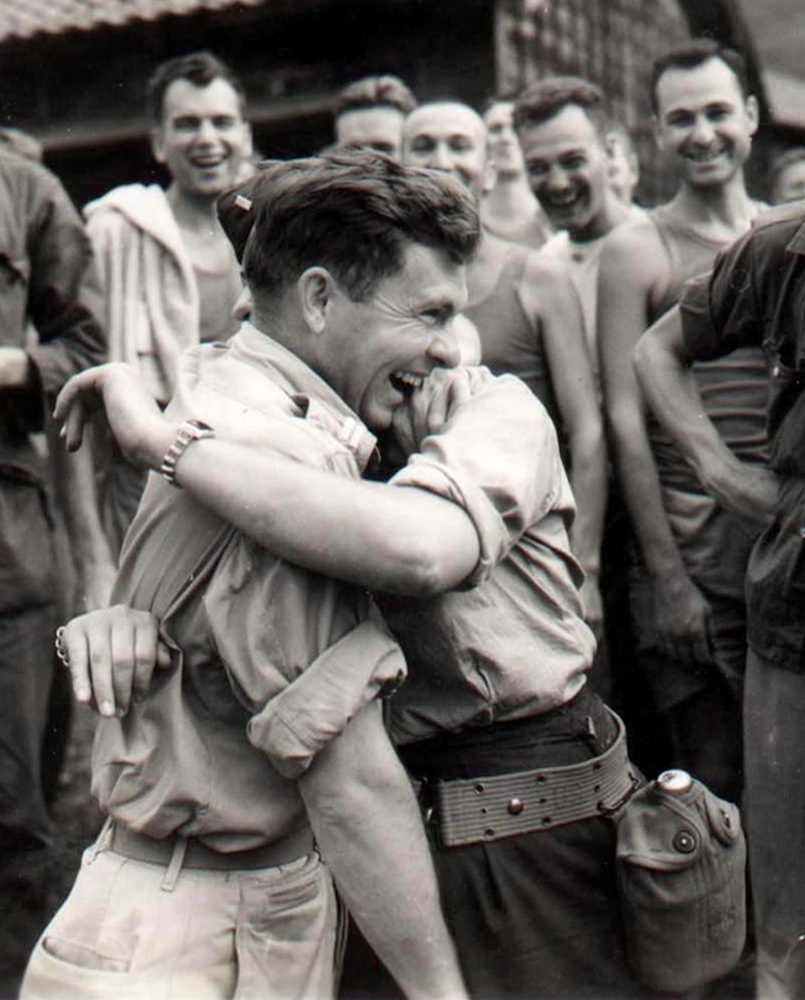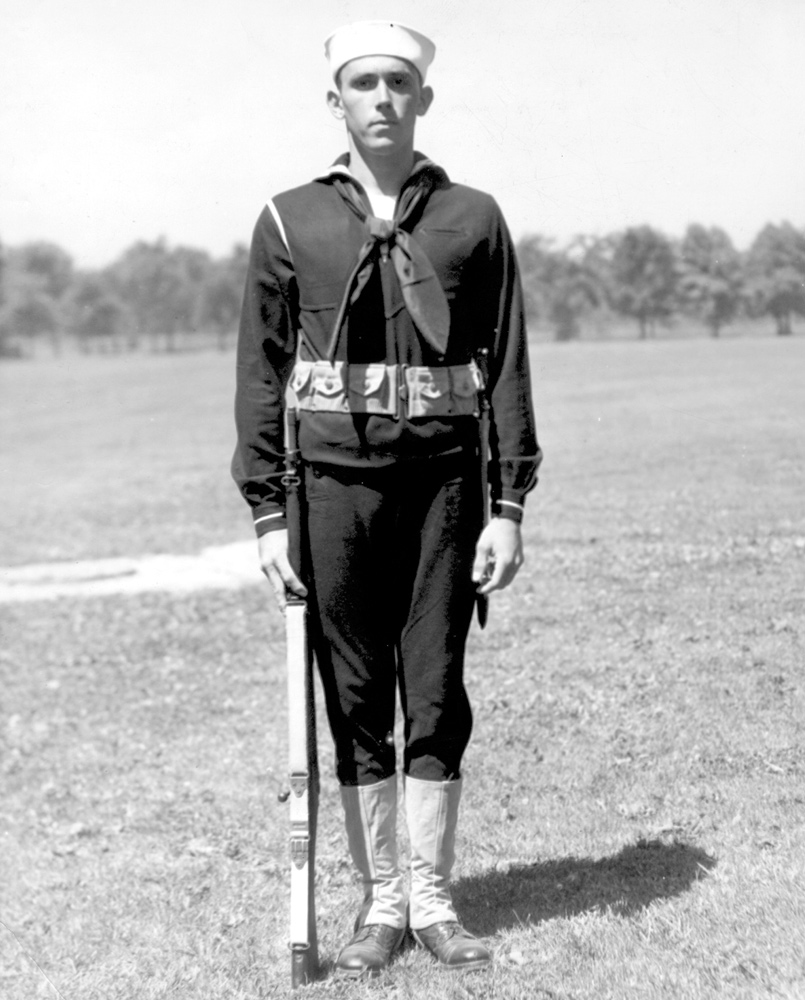chapter 20
“The Martyrdom of Harbor Lights”
“If you help others, you will be helped, perhaps tomorrow, perhaps in one thousand years, but you will be helped. Nature must pay off the debt. It is a mathematical law and all life is mathematics.” — G.I. Gurdjieff
Twelve men still remained at large even after the Japanese edict that all fugitives from that day forward would be beheaded. The thick vegetation of the jungle enabled them each individually to hide from the Japanese patrols, and the plentiful fruit and wildlife on the island provided them with the food they needed to survive.
The Guamanian underground was active in supporting these men. Their network supplemented the necessities of the fugitives and kept them informed of Japanese troop movements as well as any important news.
One of the most loyal Guamanians in the underground network was a prostitute, who American sailors dubbed “Harbor Lights” because of her crossed eyes. In the ensuing months, Harbor Lights became very active in the hazardous work of the Guamanian underground. She also fell madly in love with Tweed, one of the American sailors she was helping. She became so devoted to him that she frequently lived with him for weeks at a time in various secluded caves deep within the dense jungle hills of the island.
Tracked day and night by Japanese soldiers with bloodhounds, the fugitives were constantly on the move to avoid capture. Fortunately, the Guamanian underground provided just enough information to keep them one step ahead of the Japanese. Harbor Lights served a key connecting link between the Americans and the natives.
Despite these careful precautions, within a year and a half, the Japanese had caught all of the fugitives one by one except Tweed. Each time one of them was caught, he was paraded through the streets stark naked and subsequently imprisoned for a month in a tiny cell, where he was tortured every day. Their horrible screams could be heard all the way out into the street. When the Japanese finally grew tired of torturing them, they were publicly beheaded in Agana’s town square. The Japanese soldiers forced the Guamanians to watch all of these executions to discourage them from helping the Americans. The message was crystal clear. Anyone caught helping them would meet with a similar fate. After each execution, the head was stuck on a pole in the same spot where the person had been beheaded.
For two more grueling years, Harbor Lights protected, fed, and took care of her American lover. Meanwhile, the Japanese were using every conceivable method at their disposal to determine his whereabouts. Convinced that there were still more Americans at large, they interrogated the natives and severely tortured anyone even suspected of protecting US servicemen. Harbor Lights spent most of her time with Tweed, making occasional visits to her grandmother’s home and other villages only when supplies were running low.
Finally, informed on by the native “Devil Girls,” so named because they lived with Japanese officers, Harbor Lights was apprehended by the Japanese one night at her grandmother’s house. Taken to their headquarters, she steadfastly refused to divulge the whereabouts of her American lover. Starved, beaten, and tortured, she was then sentenced to a public execution as an example to the rest of the natives on the island. When her day of execution arrived, Harbor Lights walked with her head held high, proudly, and courageously from her prison cell to the public square as her fellow countrymen and women looked on.
Placed on her knees with her head bowed forward, Harbor Lights calmly awaited her certain death. A brawny Japanese sergeant laid the edge of the traditional two-handed sword at the base of the nape of her neck. An electric shiver went through Harbor Light’s body, but her brave defiance was still evident in every muscle of her battered body. Given one final chance to reveal the hiding place of her lover, she repeated the words that became her legendary cri d’cour, “Go to hell! Go to hell! Go to hell!” The words were still echoing in the air like a disembodied spirit, as the sword came crashing down on her neck.
The Guamanians, who witnessed the execution, swore that she was still telling the Japanese to “Go to hell,” even after her head was chopped off. She became a martyr to her people, and the natives would eventually erect a statue in her honor in the town square of Agana where she drew her last breath. After the execution of Harbor Lights, the Guamanians continued to supply Tweed with food and information. Although it was rumored that Tweed treated the natives with a degree of disrespect, he symbolized defiance against Japanese tyranny to them, and their loyalty to his cause was unswerving. Tweed managed to survive the entire war hiding out in the jungle. He eventually established radio contact with an American vessel right before the island was recaptured, and he was rescued on the beach in the middle of the night on the northeast corner of the island.
Once the US had retaken Guam from the Japanese, the “Devil Girls” were in constant peril from their own people, since they were considered the worst kind of traitors. As a result of their precarious predicament, the “Devil Girls” ended up being deported to the island of Saipan.
Contact Me
Get In Touch
Do you have a story you want to share? Maybe an image to add? Contact me today, we are always accepting new historical content to share with future generations.


